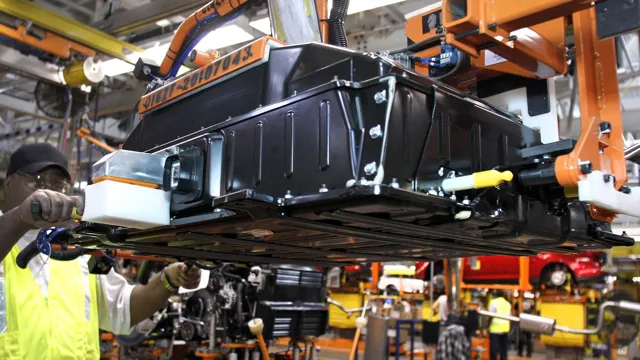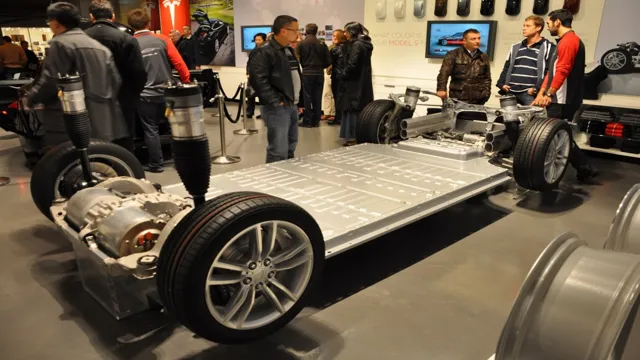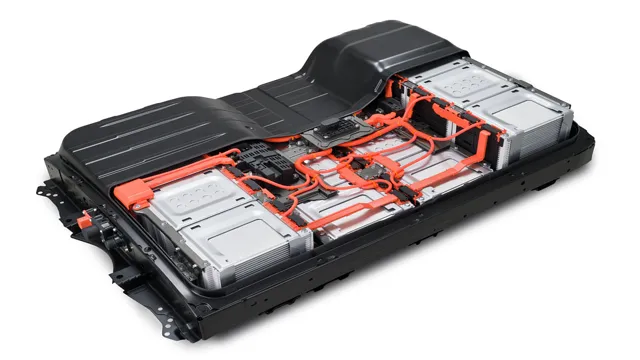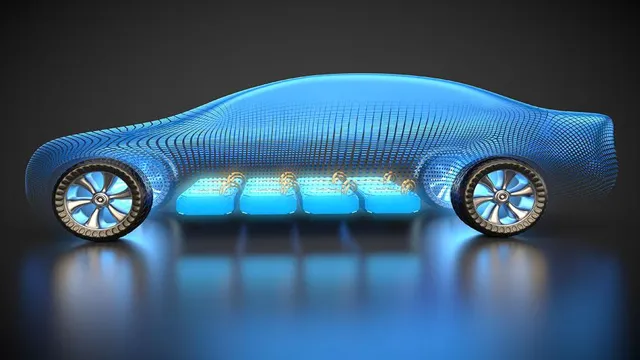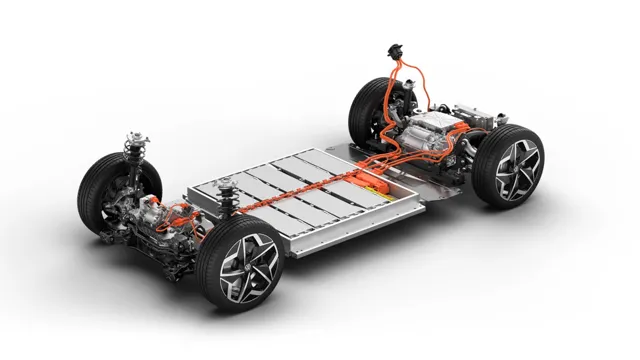Charging into the Future: Debunking the Myth of Electric Car Batteries Not Being Eco-Friendly
Electric cars have been hailed as a promising solution to the world’s increasing carbon footprint. They are seen as an eco-friendly alternative to traditional gasoline vehicles, and for a good reason. In addition to their environmental benefits, electric cars are also more energy-efficient, quieter, and offer a smoother ride.
However, there is a lot of confusion surrounding the environmental impact of electric car batteries. Are these batteries as eco-friendly as they seem? In this blog post, we will explore the facts and myths surrounding electric car batteries and how they affect the environment.
Introduction
Are electric car batteries eco friendly? That’s a common question asked by people who are contemplating purchasing an electric vehicle. The quick answer is yes, they are eco friendly, but there are a few things to consider. First, electric car batteries help reduce greenhouse gas emissions, which play a big role in climate change.
These batteries are generally made of recyclable materials, and many manufacturers have programs in place to properly dispose of them at the end of their life. Additionally, the production of electric car batteries continues to become more sustainable as the technology advances. However, it’s important to note that the manufacturing process of batteries still has an environmental impact.
The mining of materials used in creating batteries can lead to environmental damage, and the disposal of batteries can also be harmful if not handled correctly. So, while electric car batteries are overall eco friendly, there’s always room for improvement to ensure that their entire lifecycle is sustainable and environmentally responsible.
The Basics: What Are Electric Car Batteries?
Electric car batteries are a crucial component of modern electric vehicles. These batteries work by converting stored chemical energy into electrical energy that powers the car’s electric motor. Essentially, they are a rechargeable energy storage device that enables electric cars to travel long distances without needing to be recharged constantly.
The most common type of electric car battery is the lithium-ion battery, which is capable of delivering consistent power and has a long lifespan. Electric car batteries also come in various sizes and capacities, which can affect the range and performance of the vehicle. Overall, these batteries are a fundamental aspect of electric vehicles, allowing them to operate cleanly and efficiently while providing the necessary power to drive on the roads.
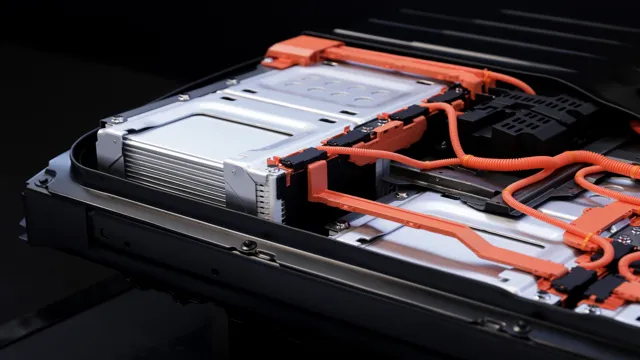
The Environmental Impact of Traditional Cars
Traditional cars have been a part of our everyday lives for decades. They have become a necessity for commuting and traveling, but they also have a significant impact on the environment. oil-based fuel cars emit harmful pollutants into the air, water, and soil, leading to detrimental consequences for the environment and human health.
The most common pollutants emitted by cars are carbon monoxide, nitrogen oxides, and particulate matter. These pollutants not only damage the ozone layer, but they also contribute to climate change, respiratory and cardiovascular diseases, and cancer. Moreover, the manufacturing of cars requires extensive amounts of energy and raw materials, and the disposal of these vehicles at the end of their life cycle creates an enormous amount of waste.
It’s crucial to recognize the environmental cost of our transport choices and begin to explore alternative modes of transportation that are less harmful to the environment, such as electric or hybrid cars, public transportation, or even biking or walking. Making the switch to sustainable transportation methods can help reduce our carbon footprint, protect our health, and preserve the planet for future generations.
The Eco-Friendliness of Electric Car Batteries
When it comes to eco-friendliness, electric car batteries are a topic that has been gaining a lot of attention lately. Many people are wondering if these batteries are truly as green as they claim to be. The answer is yes, but with a caveat.
On one hand, electric cars produce zero emissions when they drive – that means no harmful pollutants are released into the air. However, the batteries themselves are not entirely free from environmental impact. The materials used to make the batteries, such as lithium, cobalt, and nickel, have to be mined from the earth.
This process can have negative effects on ecosystems and local communities. Additionally, once the batteries have reached the end of their life, they need to be properly recycled or disposed of to prevent further harm to the environment. Overall, while electric car batteries are not perfect, they are a step in the right direction towards a more sustainable future.
Battery Production and Disposal
Electric car batteries have generated much hype and controversy surrounding their eco-friendliness. While electric cars are a greener alternative to their gas-guzzling counterparts, the production and disposal of their batteries have raised concerns. The production of electric car batteries requires significant amounts of energy and raw materials, which can impact the environment.
However, the use of batteries reduces our reliance on fossil fuels, drastically reducing greenhouse gas emissions from transportation. Additionally, electric car batteries are recyclable, and their components can be repurposed for other uses, reducing waste and environmental impact. Overall, the eco-friendliness of electric car batteries depends on the sourcing and disposal methods used and must be carefully managed to reduce their impact on the environment.
Battery Recycling
Battery Recycling Electric cars have become increasingly popular, as people begin to prioritize the eco-friendliness of their vehicles. However, the question remains: what happens to the batteries when they reach the end of their lifespan? Fortunately, electric car batteries can be recycled, and the process has become more efficient in recent years. Battery recycling allows the materials within the battery to be reused, reducing the need to extract new resources from the earth.
Additionally, recycling batteries reduces the amount of waste that ends up in landfills, preventing harmful chemicals from seeping into the environment. By choosing electric cars and supporting the recycling of their batteries, people can make a positive impact on the health of our planet.
Renewable Energy and Electric Cars
As the world moves towards renewable energy and greener living, electric cars have become popular due to being eco-friendly. But what about the batteries used in electric cars? Are they just as eco-friendly? First off, electric car batteries are considered to be much cleaner compared to traditional car batteries since they don’t release harmful emissions into the air. Additionally, some electric car batteries are made up of environmentally friendly materials, such as lithium-ion, which can be easily recycled.
Although, there are also concerns about the mining process of these materials and the impact it has on the environment. Overall, electric car batteries still have some room for improvement in terms of eco-friendliness, but they are definitely a step in the right direction.
Additional Benefits of Electric Cars
One of the common misconceptions about electric cars is the potential impact of their batteries on the environment. However, studies have shown that electric car batteries are indeed eco-friendly. The production of these batteries has become more sustainable over the years, with many manufacturers adopting initiatives to minimize environmental harm.
For instance, some companies recycle their batteries, while others invest in renewable energy such as solar or wind to power their battery plants. Furthermore, electric car batteries are also beneficial to our environment as they emit no pollution during usage. This means that driving an electric car can greatly reduce greenhouse gas emissions, air pollution, and noise pollution.
Overall, with the proper manufacturing and disposal methods, electric car batteries can be an eco-friendly solution to the world’s transportation needs.
Reduced Carbon Emissions
Reduced Carbon Emissions Electric cars are becoming increasingly popular not just for their fuel efficiency but also for their reduced carbon emissions. As opposed to gas-powered vehicles that emit greenhouse gases, electric vehicles (EVs) do not produce emissions from their tailpipes. This results in cleaner air and a reduction in the amount of carbon dioxide that enters the atmosphere.
Furthermore, EVs can be charged through the use of renewable energy sources like solar panels and wind turbines, which can further reduce their carbon footprint. It’s incredible to note how such a simple change could have a significant impact on the environment. If everybody switched to EVs, we could reduce the amount of carbon emissions tremendously, contributing towards the fight against climate change.
It’s essential that we promote the use of electric vehicles and the shift towards sustainable energy if we want to create a better, healthier world for all of us.
Lower Dependence on Fossil Fuels
One of the additional benefits of electric cars is their lower dependence on fossil fuels. Unlike conventional gasoline-powered cars, electric cars run on battery power, which means they don’t require gasoline or diesel fuel to operate. This not only reduces the amount of greenhouse gas emissions produced by the vehicle, but it also reduces our reliance on traditional sources of energy.
As we continue to work towards a more sustainable future, it’s becoming increasingly important to find ways to decrease our dependency on finite fossil fuels. Electric cars are a step in the right direction, providing a cleaner, more efficient way to travel that’s both eco-friendly and cost-effective. By switching to electric cars, we can help to reduce our environmental impact while also reducing our reliance on fossil fuels and working towards a more sustainable future.
Conclusion
In conclusion, while electric car batteries are not entirely eco-friendly, they certainly represent a step in the right direction for sustainability and reducing carbon emissions. The production and disposal of these batteries still have room for improvement, but as technology advances and efforts towards recycling and improving efficiency increase, we can hope to see even greater environmental benefits from electric cars and their batteries. So, while they may not be a perfect solution, electric car batteries certainly give us something to charge towards in our quest for a greener future.
“
FAQs
What is the impact of electric car batteries on the environment?
While electric car batteries are more eco-friendly than traditional gas-powered vehicles, their manufacturing process and disposal can still have negative effects on the environment.
How are electric car batteries manufactured?
Electric car batteries are typically manufactured through a process that involves mining for raw materials, such as lithium and cobalt, which can have harmful effects on the environment and surrounding communities.
Can electric car batteries be recycled?
Yes, electric car batteries can be recycled to recover valuable materials and reduce waste. However, the recycling process can still require a significant amount of energy and may not be 100% efficient.
What measures are being taken to make electric car batteries more sustainable?
Many companies are exploring ways to make the manufacturing process of electric car batteries more eco-friendly, such as using more sustainable materials and improving recycling methods. Additionally, advancements in battery technology are allowing for longer-lasting batteries, reducing the frequency of replacements and waste.


